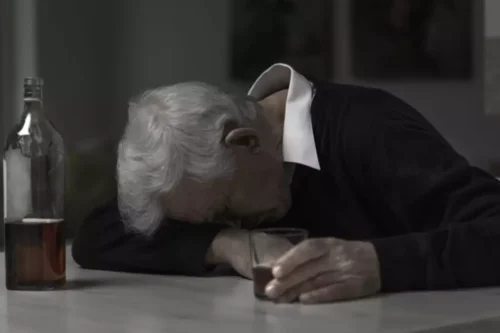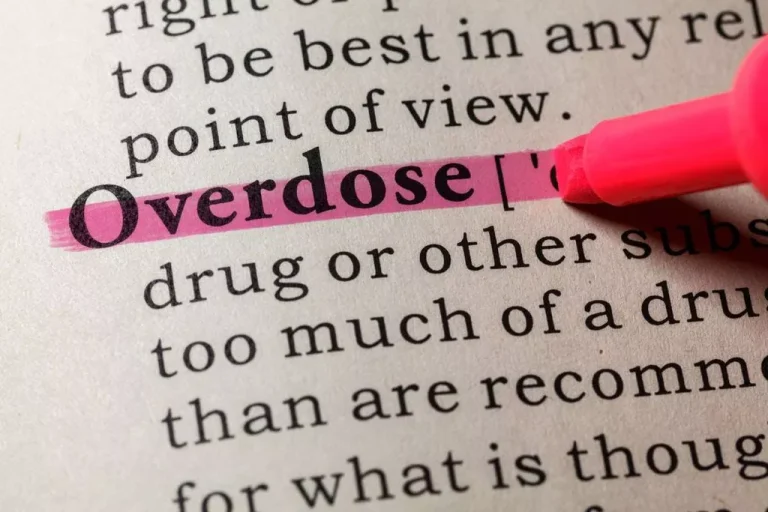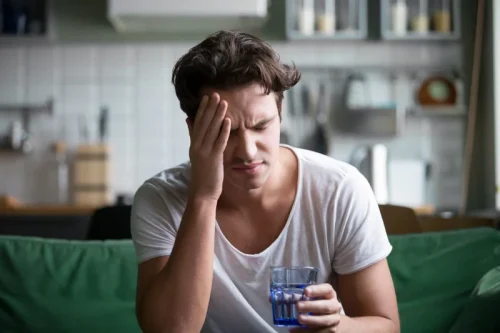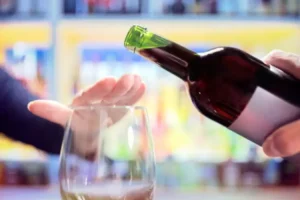
Alcohol can ease emotions in the short term, but once the alcohol begins to wear off, it can actually create more anger, depression and anxiety. Plus, after three weeks without alcohol you will almost certainly be sleeping better, which also has mood-improving benefits. When people in America notice they’ve developed issues falling asleep, their first reaction is often to have a drink. As your body metabolizes the alcohol, the excitatory nerves rebound. This process can cause you to wake up and experience trouble getting back to sleep. So while you may initially fall asleep quicker, you aren’t getting the benefits of REM sleep through the night.

Doctor shares five changes that happen to your body after a month of no drinking

With dedication and effort, you can break free from the cycle of alcohol dependency and enjoy restful nights of deep, rejuvenating sleep. This is the time when you become consciously aware of the harmful effect of drinking too much alcohol. Yet, on a subconscious level, you continue to believe that alcohol provides certain benefits. A misalignment starts to form—part of you thinks, “I needed to consider a change,” yet another part of you wants to hold onto the old “friend” alcohol badly. This is an extremely painful time, as you experience the drag and pull from the opposite desires.
Can’t sleep without alcohol? Here’s how to sleep without alcohol
Each stage is necessary for sleep to feel refreshing and for vital processes like learning and memory consolidation to occur. Even though supplements and medications can help tremendously for alcohol withdrawal insomnia, they are not necessary in every case. In other cases, they are necessary, but not sufficient to guarantee that you get the best night’s sleep possible. For people that quit drinking and can’t sleep… I’m SUPER PUMPED to tell you about Sleep Support because it’s an easy and affordable way to consume many of my favorite sleep-inducing nutrients. While this is not a comprehensive picture of the chemicals involved in alcohol withdrawal, skewed levels of any of the above are very common after quitting drinking and can cause insomnia.
Can’t Sleep Without Alcohol? 5 Alternatives to Try
- Insomnia is one of the largest setback triggers for people in recovery from an alcohol use disorder.
- The interplay between alcohol consumption and sleep disorders is a critical area of concern for both individuals and healthcare professionals.
- Whether you have had one or multiple drinks, it’s best to wait for your body to fully process the alcohol before heading to bed.
- These include breathing exercises, visualization exercises and progressive muscle relaxation.
- It is more often consumed at night, also called a nightcap, and may negatively affect your sleep.
It’s crucial to follow the recommended dosage and consult with a healthcare professional to minimize the risk of dependency or other potential side effects. In fact, having a drink before bed might actually have a negative impact on the quantity and quality of your sleep. If you can’t sleep without alcohol, I’m here cant sleep without alcohol to help you make impactful and positive changes in your life. Alcohol addiction can be difficult and potentially dangerous to recover from on your own. Severe alcohol withdrawal can be deadly, so heavy alcohol users should not attempt to wean off alcohol without the help of a professional medical detox facility.
If you have been feeling the way I felt in your journey of learning not to drink alcohol, I hope this perspective can help you make sense of your experience. My story is similar to most people’s stories—alcohol was my favorite lover until it became an abusive partner. I would swear to leave alcohol for good each morning and return to its arms every evening. I felt a lot of shame and guilt for my “weak-mindedness.” I was frustrated and scared, and I thought there was something wrong with me for falling back into the same old trap. Make sure you are in a quiet environment so your body and mind can relax.


It’s essential to work closely with healthcare professionals who can provide personalized guidance and support tailored to your specific needs. By seeking professional help, you can embark on a journey towards healthier and more restful sleep without relying on alcohol. The key to getting better sleep is to establish a consistent bedtime routine. You might want to try going to bed and waking up at the same time every day. Your body will rapidly get used to your schedule, and you’ll discover that falling asleep and waking up will be a lot easier.
- As a result, they may consume alcohol to speed up falling asleep, but evidence shows this technique does not improve sleep quality.
- When you don’t get enough REM sleep, you won’t feel rested, and you’ll see that influence your performance the day after.
- Now, link this fact to another – stress and anxiety are known adversaries of a good night’s sleep.
- The blue light from these electronic devices can suppress the body’s sleep-inducing hormone melatonin and interfere with your internal body clock.
- Create a relaxing routine instead, such as reading a book or taking a warm bath, to prepare your body for sleep.

Your body and brain tell you that you need the initial relaxation to wind down, but this is not necessarily true. Whether you have had one or multiple drinks, it’s best to wait for your body to fully process the alcohol before heading to bed. In general, try to avoid drinking alcohol four hours before you plan on going to sleep. When a person has sleep apnea, they have interrupted breathing during the night.
Can I Quit Drinking Without Rehab?
Long-term alcohol use can lead to chronic changes in sleep architecture. A decrease in slow-wave sleep and alterations in REM sleep can persist even after periods of abstinence. This fragmented sleep pattern can lead to feelings of excessive sleepiness during the day. Ultimately, no two cases of insomnia are the same, and no treatment plan is right for everyone.